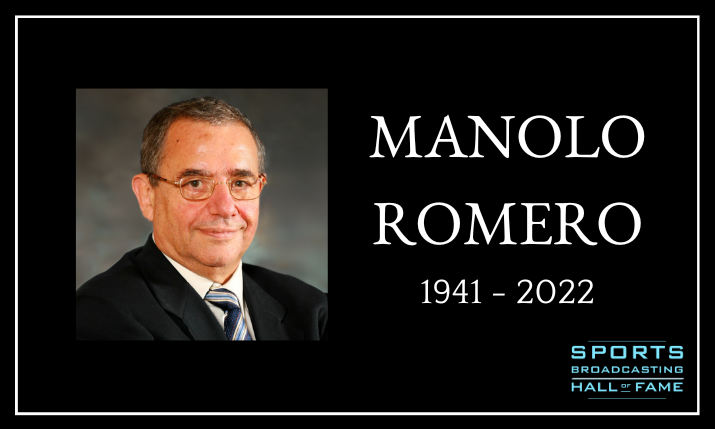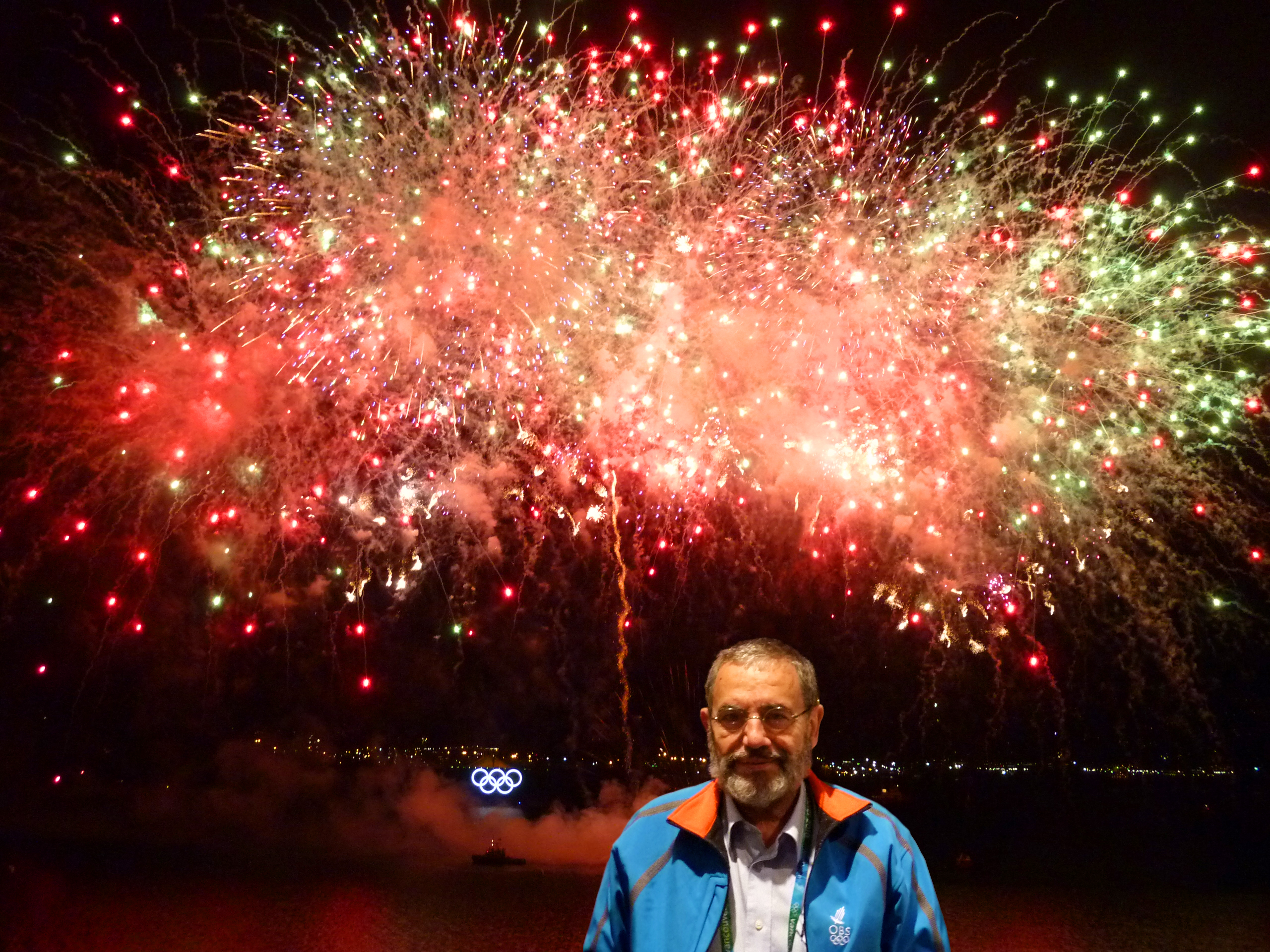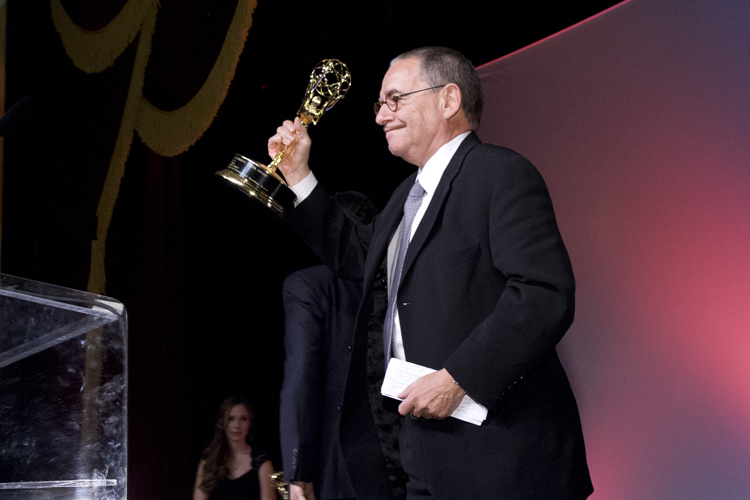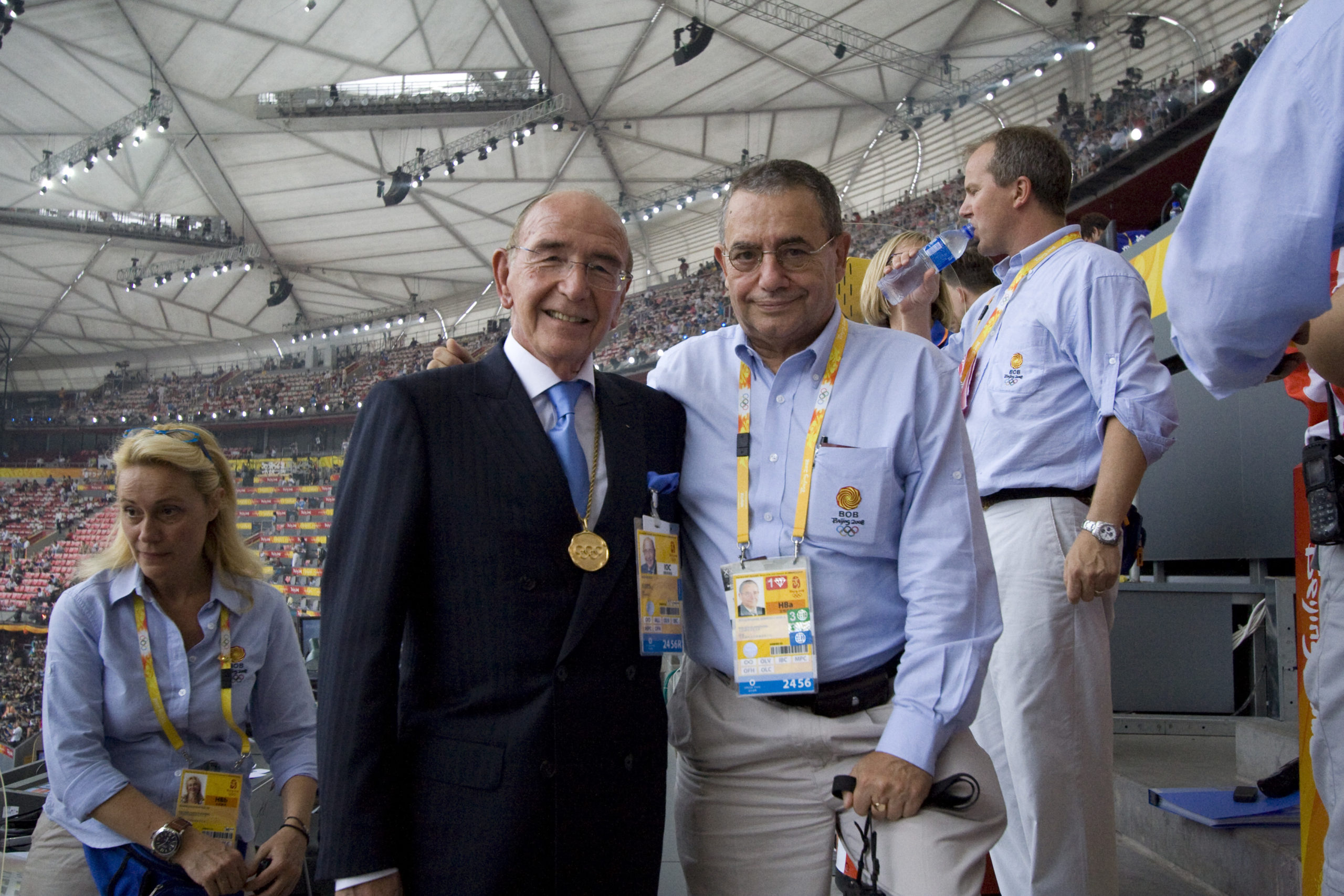Manolo Romero, Olympic Broadcast Legend and 2022 Sports Broadcasting Hall of Famer, Passes Away at 81
Story Highlights
Manolo Romero, who was CEO or general director for the host broadcast operations on 10 Olympics beginning in 1992 and was inducted into the Sports Broadcasting Hall of Famer earlier this month, passed away on Dec. 24 at the age of 81.
 As each Olympics production grew in technical complexity as well as helping popularize formats like HDTV or stereo (or even color TV) on a global scale, Romero played a part in turning promise into reality.
As each Olympics production grew in technical complexity as well as helping popularize formats like HDTV or stereo (or even color TV) on a global scale, Romero played a part in turning promise into reality.
“Manolo had to all but invent the host-broadcast concept in 1982 for World Cup and for ABC in Los Angeles and then, in reality, in 1992 in Barcelona,” says David Mazza, SVP/CTO, NBC Sports and Olympics and Sports Broadcasting Hall of Famer. “He is the driving force behind modern Olympic coverage.”
Romero’s career was defined by working with the likes of Mazza and others to make sure the host-broadcast feed meets the needs of a global sports-distribution and -production community that sometimes has very different capabilities but always has a wide range of budgets. Olympic Broadcasting Services (OBS) was able to sit in the middle and create a rising tide that lifted the quality of Olympics coverage for sports fans everywhere.
“We had no limits,” Romero said in an interview earlier this year. “And we had to go one step forward [for each Olympics] and help the major broadcasters and the smaller ones incorporate technologies.”
Romero grew up in Seville, Spain, and, like most who follow the engineering path, was a tinkerer, someone who enjoyed taking things apart and learning how to put them back together. He earned a degree from the University of Madrid, majoring in telecommunications engineering with a minor in economics.
His career began in 1965 when he landed a job in the engineering department of Spanish TV network TVE. While there, he was appointed chair of an EBU working group focused on how to exchange TV programs internationally via satellite, a role that would lay the foundation for a future in which he would work with dozens of broadcasters on the world’s biggest sports event.
“I was able to work with many international broadcasters as we tried to set up common standards for transmission,” Romero said. “And that helped me as I needed to learn how to make sure they understood me. But also I understood them; I got to see how things were done in other parts of the world. The EBU invited me to work on the EBU pool for the Mexico City Olympics in 1968 and we had to organize all the transmissions from the different venues, which were covered by different broadcasters — like ABC [from the U.S.], the CBC [Canada], NHK [Japan] and the EBU. That opened my eyes to the world of sports as I had very close collaboration with the guys from ABC.”
 In 1982 Romero oversaw Spanish Television operations at the World Cup which was held in Spain. And in 1984 he would work ABC in 1984 as director of European Operations and head of the international operations for the 1984 Olympics.
In 1982 Romero oversaw Spanish Television operations at the World Cup which was held in Spain. And in 1984 he would work ABC in 1984 as director of European Operations and head of the international operations for the 1984 Olympics.
“I learned so much from them,” he said of his time working alongside some of the legends in sports broadcasting.
The 1984 Los Angeles Games essentially gave birth to the host-broadcast model: ABC Sports had its own IBC, and the international broadcasters had theirs. The IOC liked the result because rightsholders were able to more easily get the type of coverage they desired.
“This was a model that was followed by the IOC for several Games, like Barcelona and Atlanta,” he explained, noting that “the organizing committees were responsible to have a host broadcaster.”
In 1994, Romero organized a new company called European Sports International. Owned by the EBU, it covered the 1994 World Cup in the U.S. In 1996, he followed that up by overseeing them for the Atlanta Olympics and, in 1997, established International Sports Broadcasting, serving as president/CEO. Under his leadership, ISB was host broadcaster for the 1999 World Alpine Skiing Championship in Vail and both the 2002 Salt Lake City Olympic Games and the 2004 Athens Olympic Games (it was also host broadcaster for the Paralympics in Salt Lake City, Athens, and Torino).
“He was in charge of the whole operation and host-broadcaster organization,” says Terry Ewert, former coordinating producer and head of production, Atlanta Olympic Broadcasting, NBC Olympics, “and I found his feed to be exceptional, like everything that he produced.”
Tom Sahara, Sports Broadcasting Hall of Famer and former, VP, operations and technology, Turner Sports, worked on the 1996 Atlanta Games and worked closely with Romero. “Attention to every detail is just one of the many lessons that Manolo taught those of us who worked for him,” he says. “He demanded that we perform as well as the athletes. In many ways, we were his Olympians.”
 In 2003 Romero was named CEO of OBS and in 2006 was responsible for the successful broadcast of the Torino Winter Games, serving as CEO of the Torino Olympic Broadcasting Organisation (TOBO).
In 2003 Romero was named CEO of OBS and in 2006 was responsible for the successful broadcast of the Torino Winter Games, serving as CEO of the Torino Olympic Broadcasting Organisation (TOBO).
“When the IOC created a host-broadcaster organization,” said Romero, “there were gains because you would not need to reinvent the wheel [for each Olympics]. We had a team in place with ISB, and some of them were transferred to OBS.”
For the 2008 Beijing Olympics, Romero and the OBS team were responsible for the successful production of more than 5,000 hours of television coverage, all provided in high definition and 5.1 surround sound, marking a first in Summer Games broadcast coverage.
“We made the extra effort to get everything in native HD,” Romero said prior to those Games. “If we aren’t 100% HD, we’ll be very close, with the possible exception of a couple of POV cameras. Our goal after Athens was to go all-HD, and we’ve been able to accomplish it not only with HD cameras but also with other technology, like servers, LCD monitors, and super-high-speed cameras.”
 Through it all, Romero was front and center at development of key technologies, such as the move to color TV, solid-state cameras, digital tape formats, tapeless workflows, HDTV, SDI, and UHD as OBS and rightsholders around the globe ensured that the Olympics always lead the way in innovation.
Through it all, Romero was front and center at development of key technologies, such as the move to color TV, solid-state cameras, digital tape formats, tapeless workflows, HDTV, SDI, and UHD as OBS and rightsholders around the globe ensured that the Olympics always lead the way in innovation.
Peter Diamond, EVP, Olympic programming, NBC Olympics, sees Romero’s innovation as part of what makes OBS extraordinary. “He brought the Olympics to viewers around the world in ways that were never seen before and in ways that could only be imagined.”
Romero’s influence will carry on forever at host broadcast operations, including OBS. Current CEO Yiannis Exarchos cites Romero’s work ethic, total commitment, human warmth, and capacity to solve problems while innovating as the bar OBS tries to clear every day as it gears up for the next Olympics.
“He could deliver for today while constantly thinking of new ways of improving the experience for viewers,” Exarchos says. “That is the measure by which I evaluate myself and our team every single day.”
David Hill, former Fox Sports chairman and Sports Broadcasting Hall of Famer, sums Romero up this way: “The Olympic Games in the years since Manolo and OBS took over stand as a permanent legacy to his brilliance. He truly was a giant.”
